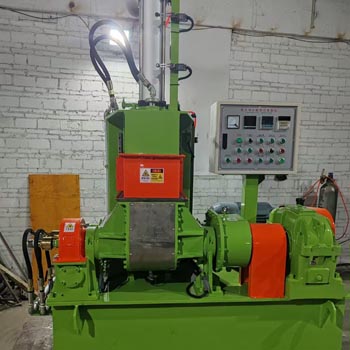The worldwide lab kneader market is witnessing a transformative phase, driven by several key trends that are reshaping its landscape. One prominent trend is the increasing demand for high-performance materials in various feild, including pharmaceuticals, rubber ,polymer ,silicone ,plastics, and elastomers. As industries seek to enhance product quality and performance, lab kneaders equipped with advanced mixing technologies are becoming essential equipment for many industries ,espercially in research and development of university & college laboratory, laboratory dispersion kneader equipment play a crucial role .
For instance, as the development of biopharmaceuticals necessitates precise formulation processes, which prompte laboratories to adopt versatile lab dispersion kneaders ,so that ensure uniformity and consistency in material properties.
These mixing equipment are specially designed for precise blending, kneading, and processing of various materials, including chemical ,plastic,polymer, resin ,silicone ,TPR etc . That is the key factory that make these laboratory dispersion kneader indispensable for academic and scientific studies. But why are they so popular in university & institute’s laboratories? Let’s explore some key reasons as follows:
1. Wide Applications
University research usually include many different subject , from materials science to pharmaceutical studies. Laboratory kneaders are versatile enough to handle a wide range of substances, including rubber ,plastic ,polymers, ceramic ,metal powder, composites, and even pharmaceutical formulations. Their adaptability and versatility makes them ideal for different academic projects, so that researcher can explore new materials and innovative solutions.
2. Controlled Processing
One of the main advantages of laboratory dispersion kneaders is their ability to offer precise control over mixing factors such as temperature, pressure, and shear rate. Through research by way of these laboratory kneader on some small samples and come to know the material’s nature ensures the quality and risk cost of mass production, which is critical in research to validate experimental results and maintain consistency across multiple tests.
3. Samples Laboratory Research for Industrial Applications
Many universities cooperate with machine manufacturer in industries ,so that develop new materials and new formulations. Laboratory kneaders help to find the best formulation from small-scale research ,so that manufacturer can invest full-scale industrial production. By simulating large-scale processes on a smaller scale, they enable researchers to optimize formulations before begining of mass or large mount production .
4. Enhanced Efficiency and Time-Saving
Compared to traditional manual mixing methods, the PLC control laboratory kneaders significantly reduce processing time and improve efficiency by programme. Their digital PLC control automated functions allow researchers to focus on analysis and innovation rather than spending hours on labor-intensive mixing tasks.
5. Tailored Features for Different Research Needs
Different studies require different processing conditions, and laboratory dispersion kneader equipment offer various function which can be tailored as per your needs , such as adjustable blade configurations, vacuum capabilities, and temperature regulation. This flexibility allows researchers to custom made the speical equipment to their specific experimental requirements.
6. Durability and Cost-Effectiveness
Investing in laboratory dispersion kneaders proves to be cost-effective in the long run. Their durability and ability to handle repeated usage make them a valuable asset in university or college institute laboratories where continuous research and experimentation take place.







